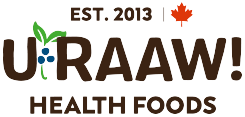Top 3 Sources of Omega-3 Fatty Acids
Studies show that as few as 1% of the population consume adequate amounts of omega-3 fatty acids. This is an alarming statistic, since lack of this important nutrient has been linked to serious ailments, including cardiovascular disease and diabetes.
Here are just some of the benefits of omega-3's, based on clinical studies:
 two forms that don't require the body to convert them in to a usable form.
Wild salmon has the highest amount of omega-3's of any fish. Aim for coho or sockeye
salmon from Alaska as it's the cleanest, and most sustainable source. Farmed salmon (even organic) is not recommended.
Other fish that contain decent levels of omega-3's include:
two forms that don't require the body to convert them in to a usable form.
Wild salmon has the highest amount of omega-3's of any fish. Aim for coho or sockeye
salmon from Alaska as it's the cleanest, and most sustainable source. Farmed salmon (even organic) is not recommended.
Other fish that contain decent levels of omega-3's include:
 The nuts, seeds, and oils that contain the highest levels of omega-3 fatty acids in the form of ALA include:
The nuts, seeds, and oils that contain the highest levels of omega-3 fatty acids in the form of ALA include:
- Reduces body inflammation
- Lowers blood triglycerides
- Helps ease symptoms of rheumatoid arthritis
- Helps prevent cell cancer growth
Fish & Fish Oils
Fish and fish oils are arguably the best source of omega-3's. They contain EPA and DHA - the two forms that don't require the body to convert them in to a usable form.
Wild salmon has the highest amount of omega-3's of any fish. Aim for coho or sockeye
salmon from Alaska as it's the cleanest, and most sustainable source. Farmed salmon (even organic) is not recommended.
Other fish that contain decent levels of omega-3's include:
two forms that don't require the body to convert them in to a usable form.
Wild salmon has the highest amount of omega-3's of any fish. Aim for coho or sockeye
salmon from Alaska as it's the cleanest, and most sustainable source. Farmed salmon (even organic) is not recommended.
Other fish that contain decent levels of omega-3's include:
- Anchovies
- Bluefish
- Halibut
- Herring
- Sardines
- Tuna
Nuts, Seeds & Other Oils
Another good source of omega-3's is nuts, seeds, and various plant oils. However, they contain ALA, a form of omega-3 fatty acids that the body must convert to DHA and EPA. Scientists believe that a very small percentage of ALA's are actually converted toe DHA and EPA, so you would have to consume high unrealistic amounts in order to get the same benefits you would from animal sources. From the University of Maryland Medical Center:The health effects of omega-3 fatty acids come mostly from EPA and DHA. ALA from flax and other vegetarian sources needs to be converted in the body to EPA and DHA. Many people do not make these conversions very effectively, however. This remains an ongoing debate in the nutrition community; fish and sea vegetable sources of EPA and DHA versus vegetarian sources of ALA.Dr. Chris Kresser wrote an excellent article outlining why he believes that fish is a much more powerful source of omega-3's.
 The nuts, seeds, and oils that contain the highest levels of omega-3 fatty acids in the form of ALA include:
The nuts, seeds, and oils that contain the highest levels of omega-3 fatty acids in the form of ALA include:
- Flaxseeds,flaxseed oil, and flaxseed powder
- Walnuts
- Hemp seeds
- Chia seeds or organic traditions sprouted chia powder
Eggs
Certain eggs are a terrific source of omega-3 fatty acids. They come in the form of DHA (also found in salmon and other fish), which is arguably the most beneficial form. These eggs contain 7-8 times as much omega-3's as conventional eggs. This is achieved by feeding the chickens marine algae. When possible, try to purchase organic free-range eggs, as these most likely come from the healthiest chickens and contain the highest levels of nutrients.Putting it all Together
Numerous studies have proven the health benefits of omega-3 fatty acids. If you are a part of the 1% of North Americans consuming adequate amounts of omega-3's, that's terrific! If you fall in to the same category as the other 99% of the population and are not consuming adequate amounts, do your best to incorporate more of the foods listed on this page. Do you think you eat enough omega-3 fatty acids? Let us know by leaving a comment below!
Tags:


